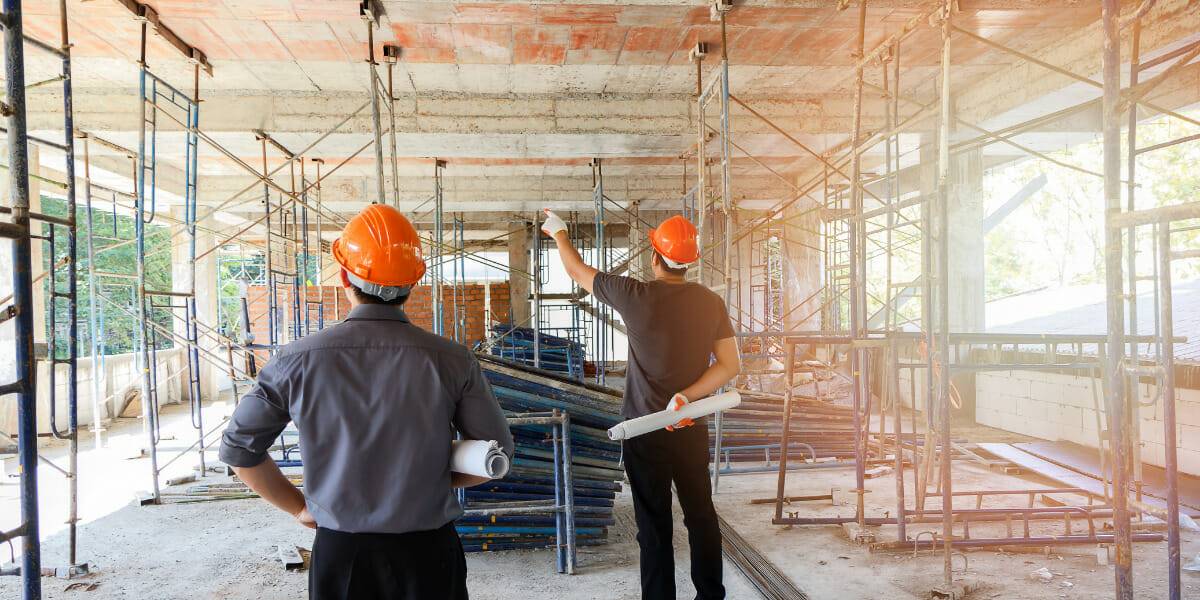Construction employees may face potentially hazardous conditions in the workplace. The Bureau of Labor Statistics has reported that an average of 1.7 percent of construction employees suffer an injury that causes them to miss at least one day of work. While there have been significant efforts from OSHA to improve safety conditions for employees at a construction site, accidents still occur.
Statistics regarding the rate of injury include the following:
In 2019, the non-fatal injury rate in construction was 112.3 per 10,000 workers, down almost 50 percent from a high of 259.4 in 2003, according to The Center for Construction Training and Research.
The “Fatal Four” (falls, struck-by equipment, caught in-between, and electrocutions) account for over 60 percent of all construction-related deaths.
Fall protection in construction remains in the top ten list of OSHA’s most commonly cited violations in the construction industry.
The National Institutes of Health reported that on average, injury rates in construction have been up to 71 percent higher than injury rates across all industries.
The National Safety Council found that in 2019, the average cost of a medically consulted injury was $42,000, while the average cost per death was $1,220,000.
While increased safety precautions at construction sites have helped improve these statistics, construction remains the most hazardous industry in Florida, with the highest total of deaths occurring in construction.
Injury Rates
According to the Center for Disease Control, about 1 in 10 construction worker fatalities are from work zone injuries. These fatal struck-by injuries often happen when a motor vehicle intrudes into a work zone or when construction vehicles and heavy equipment operate within a work zone.
Further, according to the Center for Construction Training and Research, over 25 percent of construction employees failed to report an injury related to the workplace.
In 2020, the total amount for workers’ compensation claims for non-fatal injuries accounted for a total of $7.8 billion, with falls costing $2.5 billion The injury rate among employers with 11 to 49 employees was five times higher compared to establishments with over 1,000 workers.
The most common reasons for non-fatal injuries include:
- Contact with objects or equipment (excavators, graders, and loaders) was the leading cause of nonfatal construction injuries from 2013 to 2019, at 32.8%.
- Slips, trips, and falls accounted for 31.1% of all non-fatal injuries for construction employees
- Overexertion/bodily reactions accounted for 25.2% of all non-fatal injuries for construction employees
Construction accidents reported in these statistics may fall under two categories.
First, the construction worker, which can include anyone who is employed by a public or private entity, becomes injured while working.
Second and less common, there are non-workers who may be pedestrians or children who walk into a construction site to motorists who are driving through a construction zone.
For construction workers, legal relief may follow two avenues, the first being workers’ compensation and the second being a personal injury claim. For non-workers, legal relief typically involves a personal injury claim.
Florida Law
Florida law requires construction businesses to carry workers’ compensation insurance in the event of an injury, illness, or fatality. Sub-contractors must also provide workers’ compensation coverage to their employees, and general contractors must ensure these standards are met by sub-contractors. Further, Florida’s workers’ compensation law does not permit independent contractors in the construction industry. The person is either a business owner or an employee of a business.
Florida statutes also dictate that an employer must pay the premium for workers’ compensation and the employee is not responsible to pay the premium. This no-fault system is straightforward: if you were injured at your workplace then you are entitled to receive workers’ comp. However, this no-fault system also makes it difficult for an employee to sue their employer on a negligence claim, making a personal injury legal claim less likely to happen. The quick guarantee of the workers’ compensation benefit with the exchange of a reduced capacity to file a personal injury claim against an employer is known as the “grand bargain” in the United States.
With these limitations in mind, workers’ compensation does not cover pain and suffering, so a worker may be able to file a personal injury lawsuit if:
- One of the parties responsible for the accident is not the employer. For example, an employee who becomes injured because of a defective product may file a legal claim against the manufacturer of the product rather than the sub-contractor.
- An employer’s intentional misconduct led to the accident that caused the injury
- The employer engaged in gross negligence
- Another employee’s intentional misconduct caused the accident
- The employer did not provide adequate workers’ compensation insurance coverage or denied the workers’ compensation claim
Since construction injuries that involve a personal injury claim may be complicated, it is best to consult with a personal injury attorney after a construction accident about your options.

